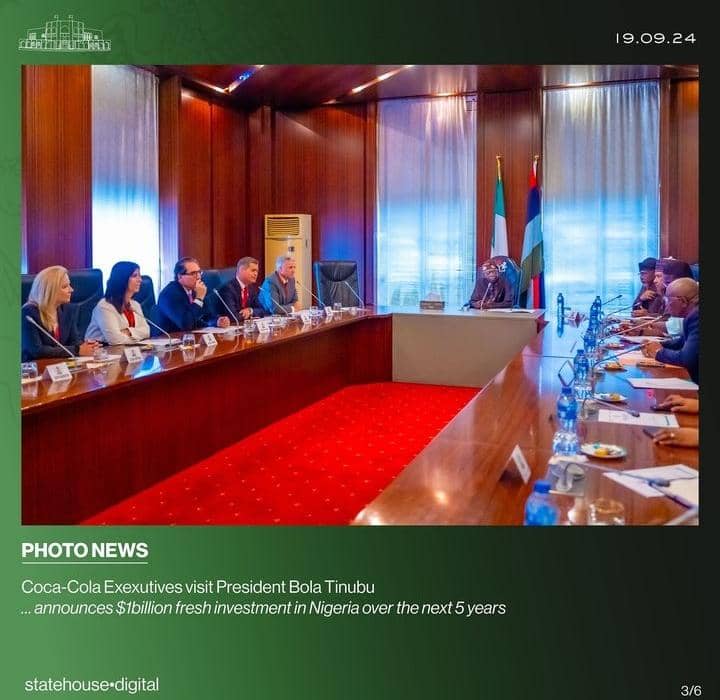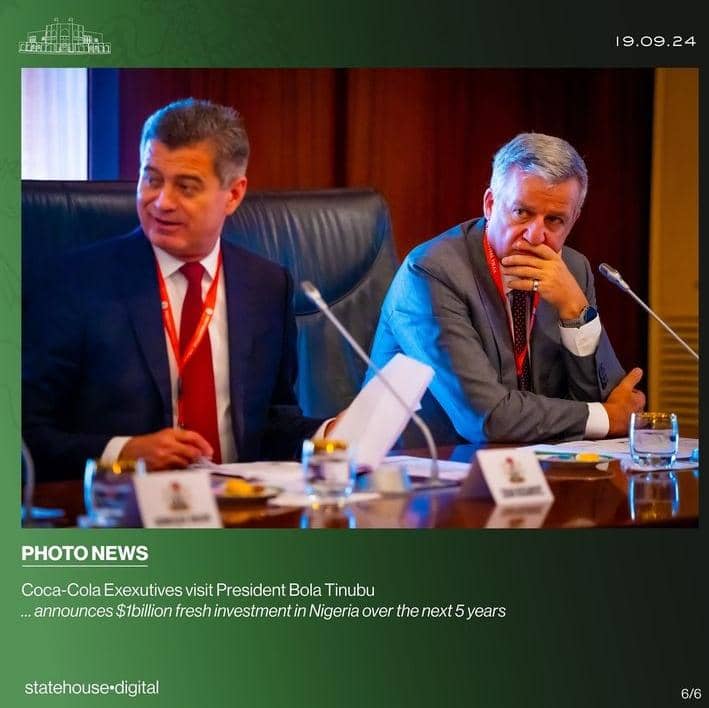Coca-Cola has announced plans to invest $1 billion in Nigeria over the next five years, marking a significant expansion of its operations in the country. This commitment was revealed by the company’s Chief Executive Officer, Zoran Bogdanovic, during a meeting with President Bola Tinubu.
In a statement released by Bayo Onanuga, the Special Adviser to the President on Information and Strategy, it was highlighted that Coca-Cola generates approximately ₦300 billion in annual revenue from Nigeria, contributing ₦90 billion back to the government. Since 2013, the company has invested around $1.5 billion in various aspects of its Nigerian operations, including capacity expansion, supply chain enhancement, and logistics.

Bogdanovic expressed confidence in Nigeria’s potential, stating, “With a predictable and enabling environment in place, we plan to invest an additional $1 billion over the next five years. Our commitment to Nigeria reflects our belief in its tremendous potential, and we aim to collaborate closely with the government to harness this.”
President Tinubu acknowledged Coca-Cola’s longstanding partnership with Nigeria and its role in creating over 3,000 jobs through its nine production facilities. He underscored the importance of private sector partnerships in driving sustainable investments and highlighted his administration’s focus on reforms to improve the business climate. The President assured that the government would continue to support Coca-Cola in its investment initiatives and address environmental challenges, including climate change.

Despite this positive development, Coca-Cola faced scrutiny earlier this year from the Federal Competition and Consumer Protection Commission (FCCPC). The FCCPC accused the company of misleading consumers regarding the formulation of its Original Taste, Less Sugar variant, suggesting it was identical to the Original Taste variant. The commission indicated that it would consider future regulatory actions regarding the alleged abuse of market dominance, along with potential penalties under relevant legislation.
Overall, Coca-Cola’s planned investment represents a significant vote of confidence in Nigeria’s market, as the government seeks to attract foreign investment amidst challenges in the economic landscape.




















































